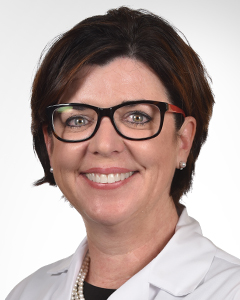There is a common misunderstanding about palliative care. Many people hear the term and mistakenly think it is simply moving another step closer to death – a step people are naturally reluctant to take.
Unfortunately, this causes many cancer patients to miss out on critical care during a time when they and their caregivers need it most.
The reality is that hospice and palliative care, while related, are two different things. Hospice is care aimed at making you more comfortable as you approach the end of life. But palliative care is a specialized field of medicine whose goal is to make you more comfortable while dealing a serious illness. That illness does not have to be life-ending.
And even if your disease is likely to be incurable, making palliative medicine a part of your care plan sooner offers significant advantages and improves your quality of life. This is true for many diseases and illnesses, including cancer, heart disease and stroke.
Advantages for the Patient
As soon as you enter palliative care, there will be a new focus on the needs of you and your family. If you’re being treated for a curable cancer, for example, there may be considerable toxicity and discomfort related to the treatments. This could include chemotherapy, radiation therapy and immunotherapy. Your oncology team’s primary focus will be on curing your cancer. A palliative care team’s focus will be on your comfort and management of the side effects. This could include:
- Symptom management: Aggressive monitoring of treatment side effects will help you deal with pain, nausea, anxiety, insomnia, constipation or any other symptoms. This can be accomplished through a variety of means, including medication and relaxation exercises.
- Comprehensive evaluation: Many cancer patients are also being treated for other medical conditions, including high blood pressure and diabetes, that may be impacted by the cancer care. A palliative care specialist can take those changes (significant weight loss, for example) into account and alter medication dosage for the other conditions until the cancer therapy is completed.
- Practical needs: Patients often need assistance with financial or legal matters, insurance and employment concerns.
- Emotional: Coping with the depression, fear and anxiety that comes with a cancer diagnosis is challenging. Palliative care specialists can offer guidance and help connect you with the valuable resources.
Advantages for Caregivers
While caring for the patient is the top priority of palliative care, there are substantial benefits for family members and other caregivers. Often, the people closest to the patient are also hit hard by the disease and its management. They suddenly find themselves caring for a sick family member or friend, while dealing with their own family and work obligations.
This can be particularly rough for older couples, where one is attempting to care for the other. In the best of times, they may be struggling to care for themselves. Add a sick husband or wife into the mix, and they can be quickly overwhelmed. That’s why elderly caretakers often see their own mortality threatened as they neglect their own needs and health maintenance.
Palliative care aids caregivers by keeping them better informed about what’s happening with their loved one. Specialists offer advice on better care techniques – for example, how to help a patient bathe or dress without causing pain. They can provide guidance and support for emotional challenges. And they can guide you to helpful resources.
Roadblocks to Earlier Care
Anybody dealing with a serious, life-altering illness or disease has the potential to benefit from palliative care. Unfortunately, roadblocks remain.
As mentioned earlier, some people are simply afraid that palliative care means the end is near. But it’s not just patients who are hesitant to consider this form of care. Often, their own doctors are unaware of the benefits offered and don’t suggest this highly specialized care until their patient has been deemed incurable.
Palliative care is designed to provide relief from the stress and symptoms of a serious illness, and to improve the quality of life for patients and their families. With that in mind, there are many people who might find value here.
Choose to Stay in Touch
Sign up to receive the latest health news and trends, wellness & prevention tips, and much more from Orlando Health.
Sign Up





